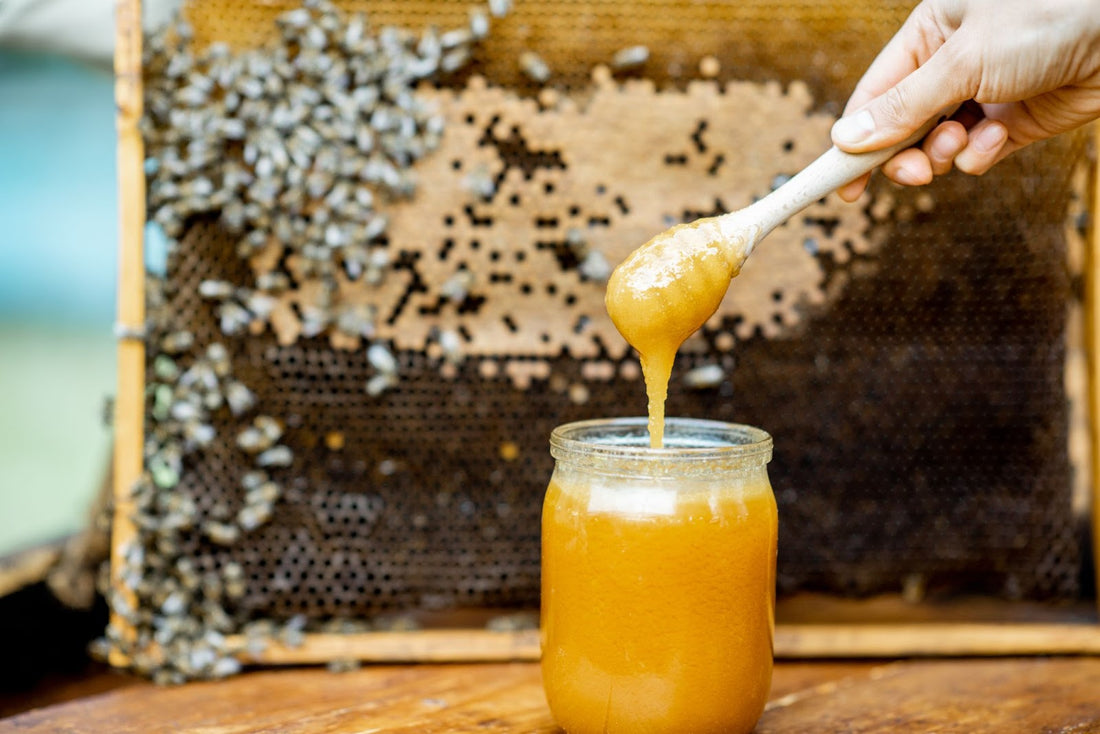Honey, one of nature's sweetest gifts, has been enjoyed by humans for centuries. Not only is it a delectable treat, but it also boasts numerous health benefits. But did you know that not all honey is made the same?
Among the various types available, monofloral honey stands out as a unique and special variety. For those curious about the intricacies of this natural delight, let's delve into understanding exactly what monofloral honey is.
What Exactly Is Monofloral Honey
Monofloral honey is predominantly sourced from the nectar of one type of flower. Unlike polyfloral honey, which results from bees foraging on various plants, monofloral honey boasts a distinct flavour, aroma, and consistency attributable to its primary floral source. This allows for a more specific and often intense flavour profile than its multifloral counterpart.
For instance, you can experience the mild, light-amber blueberry honey or the complex amber fireweed honey. Each one has a unique flavour profile, which depends on the type of blossom the bees gather nectar from.
Benefits Of Monofloral Honey: What Is Monofloral Honey Good For
Beyond its exquisite taste and distinctive aroma, monofloral honey has various health and wellness benefits. So, how and what can honey be used for?
1. Distinctive Flavour Profiles for Culinary Uses
Given that each monofloral honey reflects the unique characteristics of the flower it's sourced from, it offers a distinctive flavour and aroma. This makes it an excellent choice for culinary purposes, allowing chefs and food enthusiasts in Singapore and overseas to experiment with diverse flavour profiles in dishes.
While all kinds of honey can benefit digestion, certain wild monofloral honey, like those from the manuka flower, are known for their positive effects on digestive health. They can aid in reducing inflammation and promoting the balance of good bacteria in the gut.
2. Rich in Antioxidants
Another benefit of monofloral honey, especially raw monofloral manuka honey, is its rich antioxidant content. Antioxidants are crucial in fighting free radicals in the body, which can cause cellular damage and lead to various chronic diseases. Consuming foods rich in antioxidants can help bolster the body's defences against oxidative stress.
3. Antibacterial and Antimicrobial Properties
Some monofloral honey, notably raw monofloral manuka honey, has been found to possess antibacterial and antimicrobial properties. This means they can act as a natural defence against certain pathogens.
This can be seen since historical times when honey is used as a traditional remedy for soothing sore throats and coughs as well as a topical treatment for minor wounds and burns. Its thick consistency can offer a protective layer, providing relief from irritation.
Given its antioxidant and antibacterial properties, monofloral honey can also be a valuable addition to skincare routines. It can help moisturise the skin, fight acne-causing bacteria, and promote a healthy complexion.
Find a suitable type of honey for your needs here.
Which Monofloral Honey Is Best
Wondering which monofloral honey is best? Raw monofloral manuka honey is particularly revered among the different types of this sweet delight. Originating from New Zealand, it’s produced when bees primarily forage on the wild manuka bush. In its raw form, monofloral manuka honey hasn't been pasteurised, thus retaining all its natural properties and enzymes, which go beyond those of regular honey.
Yummi House in Singapore specialises in natural wild honey, diving deep into the most primitive environments to source the best for everybody. Even better, all our honey is Halal-certified, processed in accordance with Islamic guidelines yet still ensuring its purity and quality.
Check out our range of monofloral honey endorsed by celebrity chef Eric Teo in Singapore. Order now and get your honey delivered to your doorstep within 2-5 business days.

